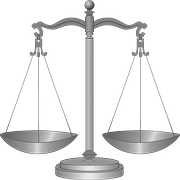What do Palm Beach Probate Litigators Need to Know About the Doctrine of Res Judicata?

What do litigators in West Palm Beach need to know about the doctrine of res judicata? How can res judicata help you in your probate litigation matter? When can res judicata be applied? What claims can be barred through res judicata? You may want to check out this recent Second District Court of Appeal(DCA) case to learn more.
There are rules to asserting a successful res judicata defense. First, there has to be a valid judgment on the merits. Second, there have to be four similarities or identities.What does this mean? Res judicata applies when the following four identities or similarities are present: “(1) identity of the thing sued for; (2) identity of the cause of action; (3) identity of persons and parties to the action; and (4) identity of the quality of the persons for or against whom the claim is made.” In other words, trust attorneys know that the issue being sued for must be the same.The cause of action and parties must also be the same in both actions. Finally, the quality or capacity of the persons for or against whom the claim is made must be the same. Basically, if a lawsuit looks like a mirror image of an old case, the Court may dismiss it under the doctrine of res judicata.
A February 22, 2017 Second DCA opinion discusses the doctrine of res judicata. In this probate matter, the decedent’s surviving spouse, Edward John, named himself as the only known beneficiary of the decedent. Decedent’s children were not served pleadings in regards to the probate case. After the estate was distributed, John decided to reopen the estate so that he could file a malpractice claim against a doctor who treated the decedent before she died. Decedent’s children WERE notified of this proceeding and one of them, Audrey Bryan, responded by filing a petition to determine intestate beneficiaries. She argued that her and her siblings were intestate beneficiaries and entitled to 50% of the estate. She further argued that , If John could not prove he was married to the decedent at the time of her death, her and her siblings were entitled to the entire estate. John argued and said that the issue of whether or not he was lawfully married to decedent, at the time of her death,was already decided on in an order during the medical malpractice proceedings. However, this order was not a final order. “The trial court found that based on the separate malpractice case res judicata applies and controls the issue of the validity of the marriage between John and the decedent.” However, were the requirements for res judicata really satisfied here? See what the Second DCA said by clicking here.